Long-standing supporter and Ace Ambassador Jane French recently visited Ace Africa’s project sites in Arusha Tanzania. Jane and her daughter Alice enjoyed both a challenging and eye opening experience, with exposure to local culture and conditions in the communities where Ace operates. Jane and Alice embarked on school visits, witnessed the impacts of counselling services, and watched drama performances to better understand the scope of Ace’s child development programmes. Jane and Alice also toured Ace’s livelihoods initiatives to see the progress being made in agriculture and food security.
We would like to take this opportunity to thank the French family for their continued support and interest in Ace Africa. Come visit us again soon!
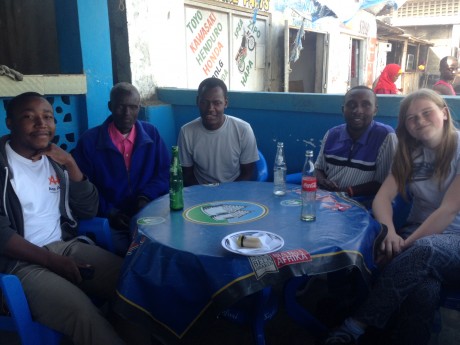 For more about their stay, read their blog below:
For more about their stay, read their blog below:
Day 1
Being our first visit to Tanzania, it was with sense of venturing somewhat into the unknown that Alice and I anticipated our arrival into Kilimanjaro International Airport. As we entered the arrivals hall, we spotted a white notice with ’Jane and Alice’ being waved at us as. We were warmly greeted by two friendly young men with enthusiastic handshakes and bear hugs, making us feel instantly at home.
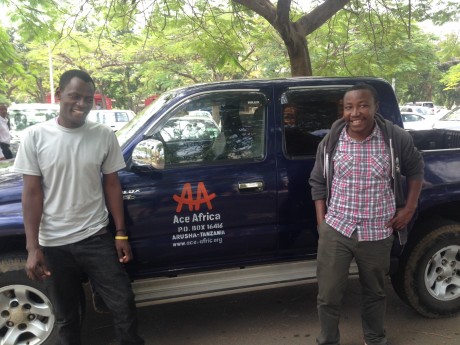
After a quick stop at our accommodation, Ace staff Lekuba and Jose introduced us to the local Ace office. Once again we were most warmly greeted by other members of the Ace team. Accompanied by Ace Child Welfare and Rights officers Peter and Lekuba, our first stop was Olemringaringa Primary school. We were greeted by Msuya the head teacher who explained that the school was founded in 1961 and now serves over 1000 boys and girls aged between 7 and 14, with a total of 21 staff members. Primary education in Tanzania is mandatory and theoretically free, although essentials such as uniforms, desks, and examination fees need to be paid. These additional costs often exclude poor children. The distance from many homes, the absence of any provision of food during the school day and the lack of decent toilet facilities are more disincentives to attend. This is a particular barrier for adolescent girls, who routinely miss school days during their period and sometimes exit school completely at the onset of puberty. Msuya explained how hard it is to find reliable schoolteachers, but a pupil to teacher ratio of 50: 1 is actually favourable by Tanzanian standards. A curriculum of Swahili, English, Maths and basic History and Geography is taught. Few children complete secondary education, and very few attend higher education.
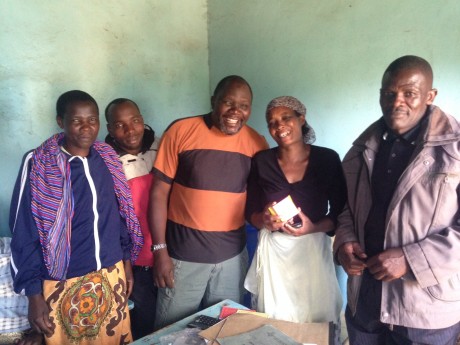
Ace works closely with Msuya and his staff – there is clearly a strong and friendly bond between the teams – to promote the ideas of child rights, access to education, the absence of child labour and the right to be healthy and safe from violence. Ace provides such basics as uniforms and sanitary pads for girls to ensure school retention. Ace further coordinates with school staff to facilitate the Child-to-Child clubs (CtC) where young students are encouraged to talk, share their experiences and explain problems they may be facing. Counseling and peer mentoring is an essential part of Ace’s work, as children themselves can be powerful agents of change in breaking old cultural norms. These programmes help dispel outdated beliefs that children are more productive working than receiving an education, that girls should be married off at 10 or 11, and that violent and incestuous sexual relations should be tolerated as an inevitable fact of life.
We were treated to a wonderful song and dance display by a class of girls and boys who, dressed in traditional Maasai robes, sang of the rights of children to go to school, to not to be forced to marry and to be safe from violence. The song was performed with great gusto and solemnity, as the children stamped their feet and banged their wooden Maasai staffs to the beat of an enormous bass drum. Ace works with communities and local schools to encourage these events and plays, prominent recently at a great rally in Arusha for ‘the Day of the Child’.
Our next stop was the Ace Africa resource centre, staffed by three volunteers. This building is an important focal point for the community, providing information, advice and support services. The centre offers medication, nutritional supplements and counseling on psychosocial issues such as domestic violence. The resource centre is also a place where essential information is captured to monitor and measure the work that Ace conducts. Ngungati the resource centre leader and his helpmate Mary show us the collected data, recording by month the number of HIV sufferers that receive care through nutritional supplements or medication, and the number of orphaned children and non-parental guardians that receive support from Ace. Posters exhibit the work of the many mentoring groups in each village and the names of key individuals, all of them volunteers who lead discussion groups.
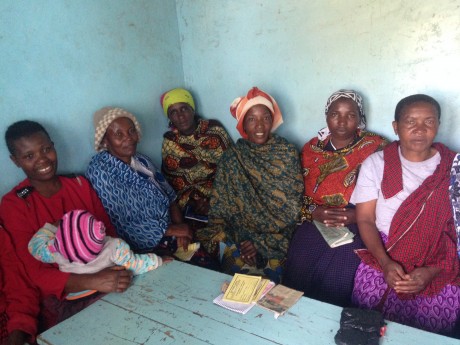
Our next visit was to the households of 2 recipients of Ace support. Both women, living in adjacent mudhuts, are HIV positive. One woman is clearly unwell and has recently lost her husband. She has to support 7 children with no income, as she is unable to work due to her incapacitating illness and stigma. Ace assists this woman through the provision of nutritional supplements, medications and a kiln potfor fuel-efficient food preparation; she has learnt how to grow nutritious vegetables and has also been given a young heifer that will soon produce milk for the family. Her neighbour has also received similar assistance.
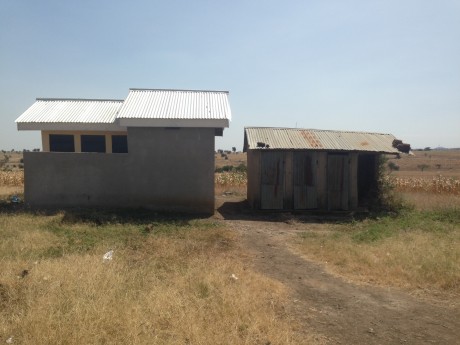
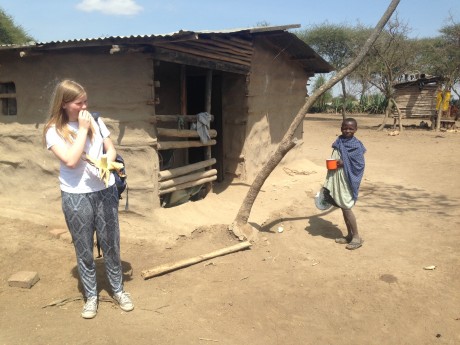
Our final journey is to a community garden where Ace volunteers teach children and adults how to plant, tend, grow and harvest nutritious food. Quality food management provides food security and essential vitamins and minerals. These community gardens further include livestock (chickens and pigs), with produce feeding 20 community members and excess sold for profit. Participants will take these basic life skills of agriculture, commerce and finance to share with their peers and prepare them for self-sufficient futures. As the local diet is mainly meat based, children are often deprived basic vitamins and nutrients. Ace aims to transfer essential agricultural skills to community members, encouraging better eating habits, the adoption of a balanced diet and self-sufficient farming techniques.
Alice and I attempted to take in all that we had seen: exhausted, impressed and humbled in equal measure. My abiding impression was of a hugely professional and dedicated team serving a community of people who, however poor they may be, are tremendously proud, dignified and unfailingly welcoming to strangers.
Day 2
Our first stop involved seeing ViCoBa in action (Village Community Bank) in Kingale. We were introduced to the Chairman, an imposing figure, and to his colleagues. Strikingly the ViCoBa members were predominantly women, which is typical in Tanzania. Each member gets shares in the bank, proportionate to her or his contribution and each is eligible for a loan from the bank to help buy essentials such as livestock or seeds. Loans are made at 5% per month, a rate far lower than local banks. It enables small but vital investments to be made either individually or collectively. It also provides a tidy return that is spread to shareholders annually. Members work together to ensure everyone is able to repay loans on time, as a default would be unfortunate for everyone involved.
Ace has helped facilitate this ViCoBa and many others like it, encouraging participants to use the resource as a forum for business activities, innovation and the exchange of ideas. In the 4 months that Ace has been involved, the collective savings of the group has grown from Ts 350,000 to Ts 5,000,000. Besides teaching the value of financial and commercial discipline, these schemes embed within the community such disciplines as responsibility and trust, governance and leadership, collaboration and mutual support in a powerful and tangible way.
While touring the district government office, we see firsthand the vital medical support Ace offers to community services. Ace supplies local nurses with needed cough mixture, paracetamol, antibiotics and anti-retrovirals. Although the government supports ARVs, these are minimal and mostly treat malaria. I am surprised by the low numbers visiting this centre – only 10 a day on average. This is in large part due to the prevailing ignorance of basic medicine, of what disease is and how it spreads.
We are next witness to an amazing agricultural machine known as a ‘posho mill’. The machine operator proudly demonstrated how a sackful of millet or corn could be threshed and ground into fine flour in a matter of minutes. The result is a staple in Tanzania (and across East Africa) – when mixed with water it creates a firm paste, the consistency of mashed potato, called Ugali. Nothing is wasted as the chaff is gathered and fed to cows and goats. Ace had provided the mill, which cost around Ts 3million, and the farming group which owns it has formed a ViCoBa to manage the profits from selling the flour; some harvest is set aside for the local sick and poor
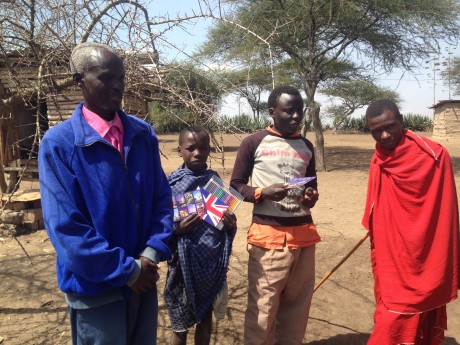
We later drove out of town to a more remote and arid region belonging to the Maasai. The landscape was practically desert with vast stretches of dry maize, little vegetation and a clear lack of water or irrigation. We travelled to see a new scheme where Ace provides locals with a nanny goat, teaching farmers how to raise offspring with a view to selling livestock at markets for profit. Ace also provided 20 chicks with their own coop. Profits earned often go towards educating children.
Our farewell was even warmer than our arrival – big hugs and handshakes all round. It is hard to express how much admiration I have for this incredibly dedicated, professional and hard working team – a band of brothers and sisters – who are gradually changing the communities of Arusha and Tanzania, one life after another.
If you are interested in visiting Ace Africa’s project sites in rural Kenya and/or Tanzania, please contact the Ace UK team at (+44) 207-933-2994